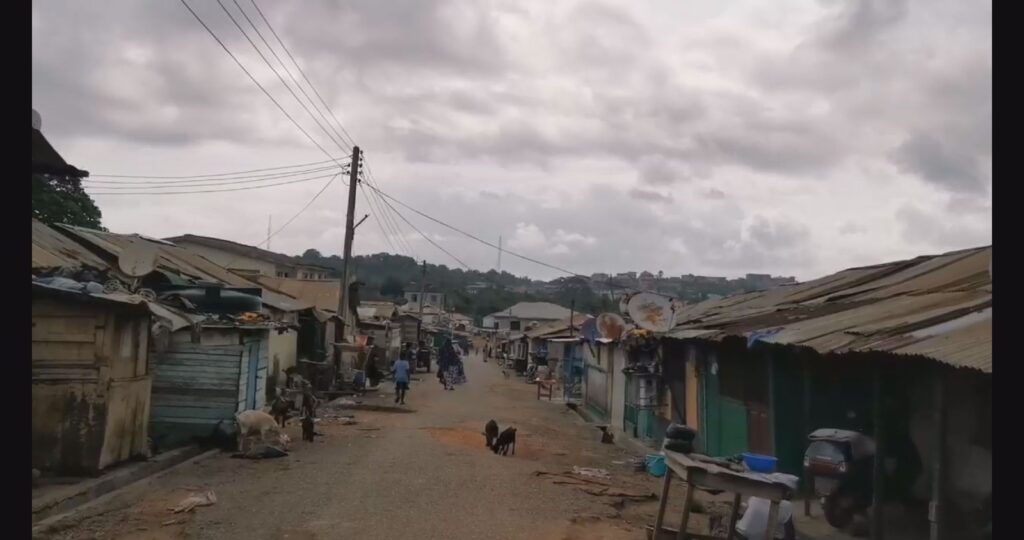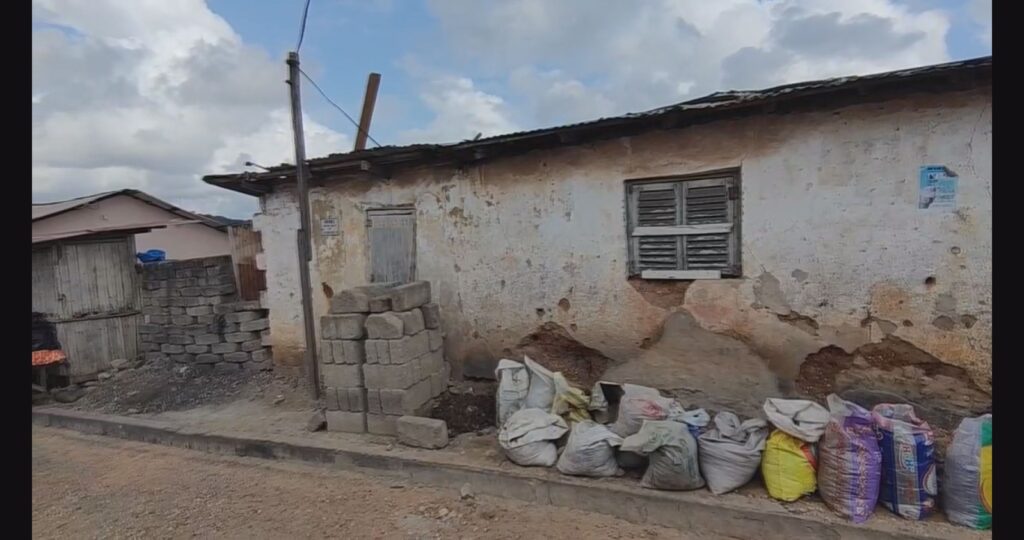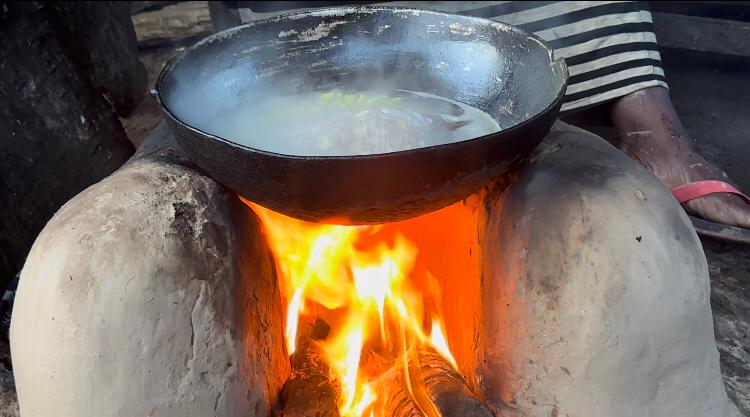Rising temperatures are turning homes in Sekondi-Takoradi’s Zongo communities into unbearable heat traps.
A combination of climate change, poor housing design, and limited ventilation has led to dangerously high indoor temperatures, threatening the health and safety of thousands of residents.
Children, the elderly, and pregnant women are among those most affected by this growing heat crisis, which many experts say is being overlooked in Ghana’s broader climate agenda.
Zongo Residents Battle Extreme Indoor Heat
While Ghana’s climate policies focus mainly on flooding, sea-level rise, and droughts, another crisis is quietly unfolding in communities like Takoradi Zongo — extreme indoor heat.
With buildings constructed close together and little airflow between homes, residents say their living spaces have become almost uninhabitable during the day.
“The buildings are too close together, and we cook in tight spaces, so the heat just builds up. I suffer from skin rashes because of it. I’m pleading with the government to step in — spacing out the buildings could help,” said Theresah Binney, a resident.
Families Struggling to Stay Cool
For many families, coping with the heat has become a daily challenge.
“I use wet towels to cool my children, but the elderly can’t handle the heat. It’s too much for them,” lamented Barikisu Dauda, a trader and mother of three.
Others say the extreme heat often drives them outdoors at night in search of relief.

“Sometimes we sleep outside just to get fresh air, but then we’re attacked by mosquitoes,” said Iddris Mohamed.
He added that the situation affects hygiene and well-being. “People develop body odor and other health problems. It’s frustrating.”
City Authorities Take Action Against Urban Heat
The Sekondi-Takoradi Metropolitan Assembly (STMA) says it is aware of the growing danger and has begun implementing measures to tackle indoor heat and pollution in Zongo communities.
According to Abu Mahama, the Assembly’s Metropolitan Development Planning Officer and Climate Change Focal Point, several interventions are being rolled out to reduce the impact of extreme heat — particularly in areas like European Town, where many women cook in enclosed spaces using wood and charcoal.
“We’re introducing clean cookstoves to reduce indoor heat and promote healthier living,” Abu Mahama explained.
“We also plan to educate residents on how to retrofit their homes — installing larger windows, adding ventilation outlets, and planting trees for natural cooling.”
Research Reveals Health Threats from Indoor Heat
A recent study by Dr. Ebenezer Amankwaa of the University of Ghana shows that extreme indoor temperatures in Sekondi-Takoradi’s Zongo communities are directly harming residents’ health.
Many households rely on electric fans and open windows to stay cool, but frequent power outages and high electricity costs make these solutions unreliable.
Dr. Amankwaa’s research calls for climate-responsive housing policies that prioritize ventilation, thermal comfort, and affordable cooling technologies for low-income communities.
“We need to design homes that can breathe — buildings that stay cool naturally and protect people’s health,” Dr. Amankwaa emphasized.
His recommendations align with Ghana’s National Adaptation Plan (NAP) and Nationally Determined Contributions (NDC), both of which call for urgent climate action to safeguard vulnerable populations from environmental and health risks.

Experts Call for Bold Housing and Climate Reforms
As temperatures continue to rise, the heat inside Zongo homes is becoming more than uncomfortable — it’s dangerous.
While the STMA’s efforts to introduce cleaner technologies and raise awareness are commendable, experts insist that lasting change will require stronger housing reforms, better urban planning, and greater investment in community-level climate resilience.

“We can’t fight climate change without protecting the people most exposed to it,” Dr. Amankwaa stressed.
This story is produced in partnership with CDKN and the University of Ghana C3SS, with funding from the CLARE R4I Opportunities Fund.
Source: Prince Owusu Asiedu


